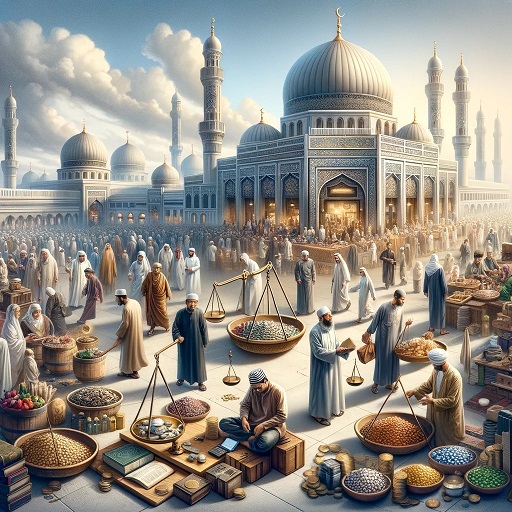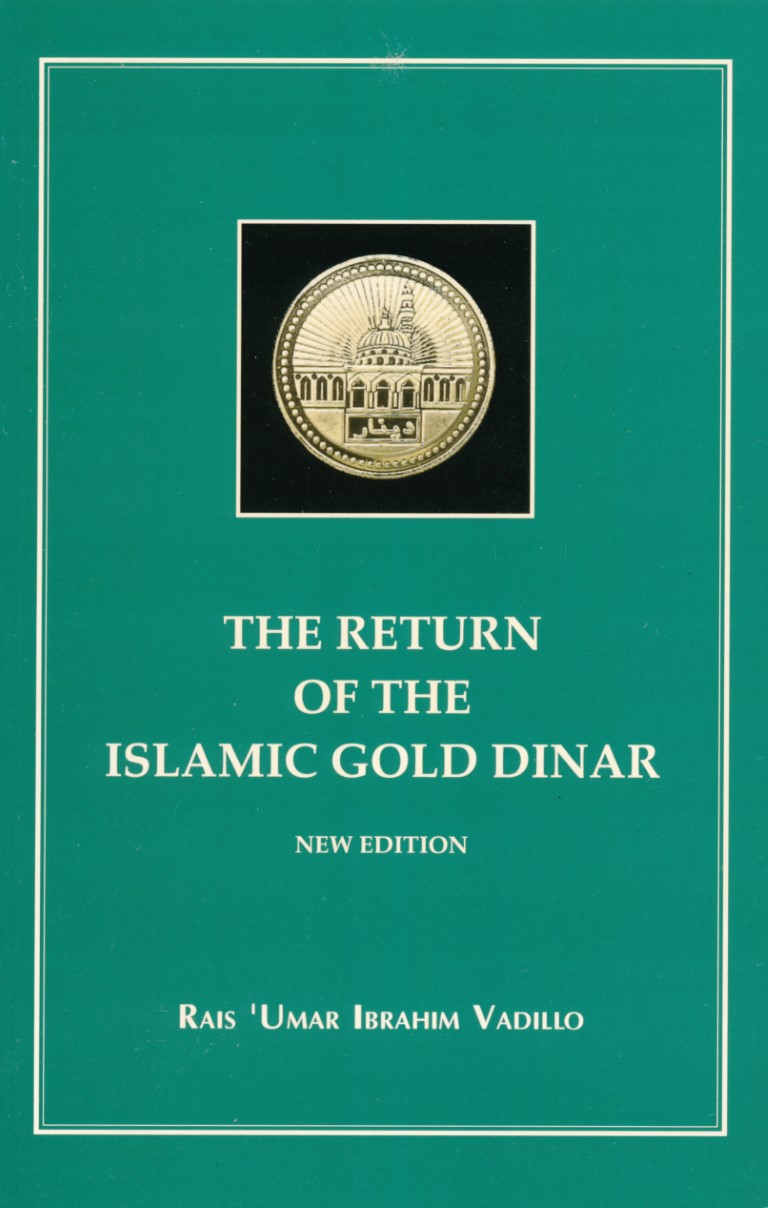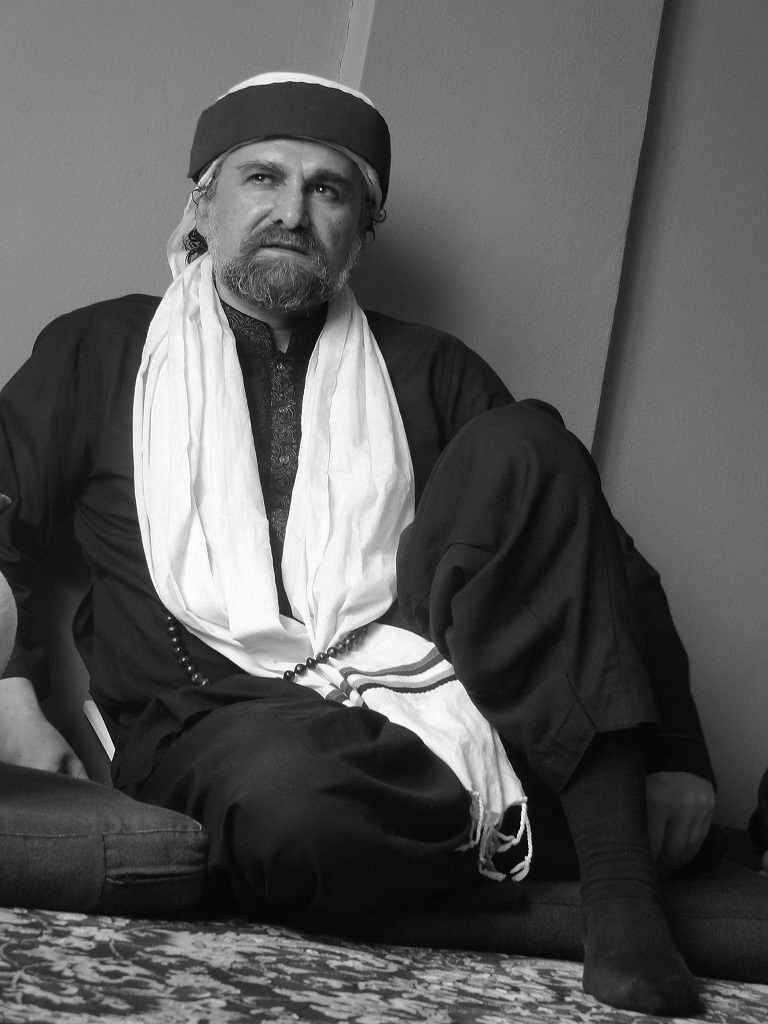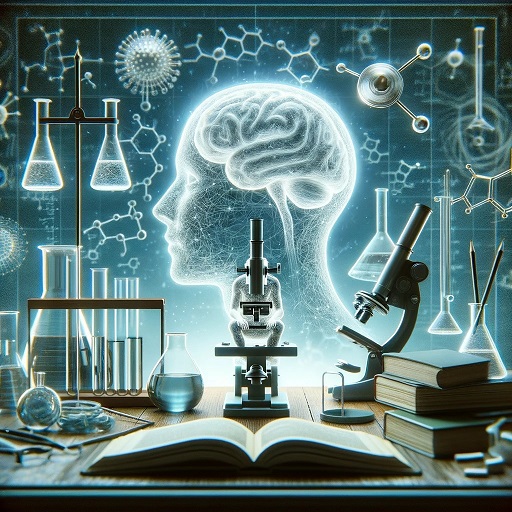
Summary
Bismillah irrahman irraheem
In 1926 when Martin Heidegger (1889–1976) the German philosopher, published his book “Being and Time” he revolutionized thinking with a new radical approach to individual freedom that irreversibly tore down the foundations of philosophy.
Eventually he will call this “the end of philosophy”, the end of a 2,500 years old “fashion of thinking” which is the exclusive product of the West and was founded upon the writings of Plato. He consequently declared that “science does not think”. Such statement still puzzles people today.
Heidegger’s analysis pointed out that science is incapable of thinking what is more important to thinking: the Truth. We will take a walk alongside the path of Heideggers’ thinking into the nature of scientific enquiry and why it cannot think the Truth.
Then we will take a leap –as he suggested- reaching to the other side of philosophy, beyond philosophy, in order to arrive to a concluding statement that has a direct relevance to us: “marifatullah is thinking”.
The Statement “science does not think”

Let us start with a statement much easier to grasp “a calculator does not think”. Here our western educated mind does not feel repelled. We can easily understand that a machine does not think. Numbers are inert. They are deprived of judgement upon whatever they count or calculate.
What results problematic is how our ability to calculate numerically determines the way we look at the world, and how we then interpret and evaluate the data we obtained.
The problem is that in order to use our science we need to reduce nature in advance into data that science can use. This reduction or “enframing” of nature, into numbers for example, makes us see a representation of nature like a screen that comes between us and nature. It is obvious that numbers are not nature, but it can become blurring when we give our calculations an absolute validity. And this is the problem.
Useful data is that data that we can use in our calculations and what it cannot be reduced to data is simply dismissed and in practical terms it “does not exist”. And here starts the danger. While the calculator is inert, looking at the world with the calculator demands extracting data in numerical form: it reveals the world in numerical form.
The danger of this outlook consists in this reduction which is necessary to activate the calculator but it is incapable of describing reality in its complex relationships and infinite features. When data (numerical or information based) assumes the quality of a fact then further calculations are assumed also to be a fact.
Since Immanuel Kant (1724-1804) invented “the objective” modern science was born. He wrote:
“Up to now it has been assumed that all our cognition must conform to the objects; but … let us once try whether we do not get farther with the problems of metaphysics by assuming that the objects must conform to our cognition”
To record data is not sufficiently reliable, to be objective, data must be subject to further scrutiny (preconditions of the construction of objects) that must satisfy and conform to our cognition. It is necessary to synthesize with laws (such as cause and effect) the random data of the sensory manifold into intelligible objects.
Reality does not matter, what matters is what we understand of reality; therefore, reality becomes what we understand reality is. That is why Heidegger wrote that with Kant we learned “to think our own thoughts”. The danger and its madness have now been given a universal ontological approval.
Instead of recognizing the limitations of our cognition, Kant limits nature to our cognition. Now, if we are not aware of our cognitive limitations we plunge directly into a zone of pure superstition and fallacy. The fallacy is to give to the objective data an absolute validity and therefore replace reality with it, and it is even more fallacious to use that data to further elaborate judgements that affect nature or people. To do this is to make nature into a concept.
From the naked eye, the sun appears to go around the Earth which is inferred by the means of observation. But from Galileo’s telescope it is clear that it is the Earth that goes around the Sun, which is also determined by the means of observation. Later we discovered that the sun is not static either. Reality does not change, only our cognition changes.
Understanding that “reality does not change” is understanding our limitations. Newtonian physics gave us a description of velocity and space derived from his famous formulas, later quantum mechanics offered a complete different paradigm based on statistical mechanics. What is common to all these descriptions is what Heidegger defined as “nature has in advance to set itself for the entrapping securing that science, as theory accomplishes”. Science projects an interpretive framework in which nature appears as “a coherence of forces calculable in advance”. We see what we can calculate. We see what we want to see.
Furthermore, he argues that what is distinctive of modern physics is that it is mathematical and indeed quantum theory, chaos theory, string theory or supersymmetry cannot renounce this one thing: that nature reports itself in some way or other that is identifiable through calculation and it remains orderable as a system of information. Chaos theory is linked to the capacity of computer systems and their massive calculations and the string theory entails extra dimensions of which we do not even have empirical evidence.
The idea that the nature is written in the language of mathematics is as old as Pythagoras. Yet as Goethe said:
“nature is not system, so if we are to think nature we cannot think it like a system.”
If fascinated by our ability to deal with numbers we insist in reducing nature to numbers then we must be aware of that we are dealing with a partial representation of nature and not nature itself. This is a problem not because we may commit an error in our calculations, this is problem because we place nature under the danger of our accurate calculations. This is what Heidegger called “Enframing”.
Enframing is the essence of technology as the mechanical ordering by man of the real according to a self-interpreted project of “organized conquest of the earth”. This is not to suggest that we have to do without using data or technology, this is to say that reality lies beyond our ability to know and act. The world as we know it and the world that comes “at hand” of our technical abilities must recognize that we are not detached from reality, but in fact we “care” (Heidegger’s “Sorge” in German). Here we should recognize a fundamental shift: that we are not the “observers”, but the ones “being observed” and we will come to this later. In conclusion, to assign science with absolute validity is scientism, and that is a superstition and it is dangerous.
When science places its focus on man and human society this danger is even more clear, because we are the victims. The destruction of nature, the devastation of ecosystems and the systemic pollution and poisoning of air, earth and water, in the last two centuries of scientism was rationally justified. Reason did what is supposed to do: to justify anything it wishes.
Without knowledge (of Allah) reason can justified anything including human genocide, Riba (which is more than usury), National Debt or State taxation.
When science is applied to people in the form of human sciences, such as sociology, anthropology, psychology, human biology, economics or political sciences, the danger is directed to ourselves. The reduction of man to a thing, the reification (making into a thing) of man, is the result of reducing man to calculable data that we can process. Here we do not attack nature, but we attack ourselves. Man is reduced to calculable data. Statisticians do this without any prior understanding of what is at stake, but simply under the obligation to fulfil a task within a rational structure. Economists sitting down in a desk can then use the facts provided by the statistician to legislate or order society. Human sciences are a systematic failure to comprehend man.
For this reason Heidegger refuses to use the word man and uses the word Dasein (literally means being-there) in order to eliminate its reification or reduction to a concept. To resist the reification of man is simply a cry for freedom. It follows that the idea of Islamic sociology, Islamic economics, Islamic psychology, etc. are nothing but a complete contradiction made in the fantastic head of modernist scholars.
The victim of this reification is freedom and also Islam. The fact that modern systems of statistics using already existing data, can “project” the needs of the nation, it does offer an insight which might be of great usefulness to the government but it does not give the government unlimited authority to trample on individual freedom. Man is not data neither is he limited to his particular needs. There are fundamental matters that cannot be expressed in statistical information, such as individual freedom.
The important thing here is not the data but the disappearance of what is not data. The imposition of taxes by the government is considered an act of violence in Islam (only zakat is acceptable, which is collected and distributed to its given beneficiaries in 24h or as soon as possible), yet it is taken as absolute truth following the sociological fantasies of the West. If taxes are not enough the government can indebt itself on behalf of the people (National Debt) as a matter of absolute truth. These absolute truths are legitimized into Laws. Legislation is absolute. Yet, it is Islamically absurd.
Nobody can be made liable to a debt incurred by somebody else. Constitutionalism, which is the foundation of post WWII capitalist world order, and which has validated this practice, is socio-logical but utterly irrational and furthermore, repulsive to Islamic injunctions. Allah has given us His Legislation and any attempt to rule by other than the Laws of Allah is considered kufr. Not a mistake, but kufr. Legislation is not a light matter. State Taxation and National Debt is scientism.
Sociology has also “proven” that “the opinion of the majority” is to be considered absolute truth. They can declare for example that riba is halal in the country and create a Central Bank. Every country in the world has one. The justification is solid (given the amount of literature that supports it), but only if you have no knowledge of Allah. Man is not a biological unit with needs which can be calculated. Man is a worshipper of Allah which is above any analytical enframing. Central Bank is scientism.
What currency the people of the country must have, is today decided by State Law. The capacity of every individual to choose in conjunction with others their own currency, as we did when we had Dinar and Dirham, has been eliminated because the economists say so.
Freedom to choose your currency which is granted by Allah, when He says:
“trade with mutual consent”. Yet this is ignored. We should notice that our Islamic governments in the past minted Dinar and Dirham, but they did not impose its usage, because this is not allowed. Money imposed by government is scientism.
Science cannot think the Truth
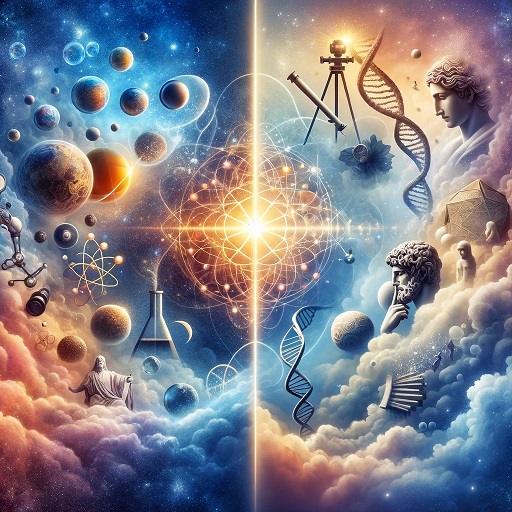
Science, which is the child of philosophy, cannot think the Truth. Yet, when we refer to the description of something and that description corresponds with what we observe, we express ourselves with sentences such as “this statement is true”.
We should not say “this statement (in Ancient Greek, statement is called logos) is true”, we should simply say “this statement corresponds” or “it is in accordance”.
Truth in Arabic is al-Haqq and is one of the Names of Allah.
Al-Haqq cannot be grasped as observable data. We say Allah cannot be described by what, where and how. The form of enquiring of what, where or how and its answer in the form of a logos (statement) is the grounding in which philosophy is founded.
When Heidegger says that science “does not think”, obviously, the type of thinking that he is referring to is not the thinking to which we are accustomed to. The way of thinking that we are accustomed to, from school and University, is the thinking of science. He is saying that the type of thinking that we are used to is blind to a fundamental matter, a matter that escapes us because of the way we enquire. That which “our thinking” is blind to, is the actual purpose of thinking: Truth.
The right purpose of thinking is Truth. Yet scientific thinking, which takes its roots in philosophy, is blind to Truth. It can only enquire about the essence of Truth, but not Truth. And what is the essence of Truth in philosophy, is the result of enquiring through what, where and how. This is what Heidegger calls essential thinking (essentialism), which “has to do with thinking” but is not thinking.
The problem is the “fashion of thinking” we use. That way of thinking turns “what must be thought” away from it. But that which withdraws from this way of enquiry is in fact the most important: Truth.
Heidegger wrote:
“What must be thought about, turns away from man. It withdraws from him. But how can we have the least knowledge of something that withdraws from the beginning, how can we even give it a name? Whatever withdraws refuses arrival.”
When we attempt to find the Truth by asking what where or how, the Truth withdraws. What comes forward from enquiring in that way is not the Truth but only our own thoughts about the Truth.
At this point, I am going to take a “leap” forward. We cannot define Allah by what, where or how. Allah is beyond measure. He is not comparable to anything. The same is applicable to Truth.
Truth cannot be understood by asking what, where or how. We reach Allah, not by the inquisitive mind but through another approach altogether. We are not the observers, we are the observed. We are not questioning, we are the ones questioned. This is what in Islam is called Ihsan. The difference between these two approaches is the basis of “the leap”.
This understanding produces a complete change in our relation to Truth, and also to thinking. We cannot create the Truth by any rational approach. Man is simply not capable of such accomplishment. Whoever tries to reach the Truth enquiring with what, where or how, it will only encounter something else: himself. Truth withdraws from essentialist questioning.
If the enquirer is not aware (of the limitation), he will think that what comes forward as the answer of his enquiry is the Truth, but it is not. If persuaded that he is right, the enquirer will live in a fantasy. Any essentialist enquiry of God will produce a concept of God, but Allah is not a concept. Such effort is theology. Theology does not think.
The result of such theological thoughtless process are concepts such as the “ideology of Islam”, “spirit of Islam” or the “principles of Islam”. Islam is not an ideology; and principles or spirit when derived from a rationalist enquiry are nothing but attempts to “enframe” Islam.
Heidegger wrote:
“What do we ordinarily understand by truth? This elevated yet at the same time worn and almost dull word “truth” means what makes a true thing true. What is a true thing? We say, for example, “It is a true joy to cooperate in the accomplishment of this task.” We mean that it is purely and actually a joy. The true is the actual. Accordingly, we speak of true gold in distinction from false. False gold is not actually what it appears to be. It is merely a “semblance” and thus it is not actual. What is not actual is taken to be the opposite of the actual. But what merely seems to be gold is nevertheless something actual.
Accordingly, we say more precisely: actual gold is genuine gold. Yet both are “actual”, the circulating counterfeit no less than the genuine gold. What is true about genuine gold thus cannot be demonstrated merely by its actuality. The question recurs: what do “genuine” and “true” mean here? Genuine gold is that actual gold the actuality of which is in accordance with what, always and in advance, we “properly” mean by “gold”. Conversely, wherever we suspect false gold, we say. “Here something is not in accord”. On the other hand, we say of whatever is “as it should be”: “It is in accord.” The matter is in accord.”
Before we continue let me recall what we have advanced so far on this topic. Heidegger points out that the word “truth” has become trivialised in our language. Let us take some advantage here because of the fact that we are Muslims. We say Allahul Haqq. Truth in that sentence dwells in another realm than when we use the word truth in ordinary language.
This common use of the word truth is already betraying any access to Truth. What we mean when we use the word “true” in ordinary language already points to something very different than in the sentence Allahul Haqq. Al-Haqq in Islam refers to the One, which is hidden from us by our own veiling. The “truth” in ordinary language is a code in a “game of accordance”. This is the accordance between a proposition or statement (logos) and the actuality of the thing spoken about. This means that not only our thinking betray us also our language betray us in our quest for true thinking. It leads to confusion.
“However, we call true not only an actual joy, genuine gold, and all beings of such kind, but also and above all we call true or false our statements about beings, which can themselves be genuine or not with regard to their kind, which can be thus or otherwise in their actuality. A statement is true if what it means and says is in accordance with the matter about which the statement is made. Here too we say, “It is in accord” Now, though, it is not the matter that is in accord but rather the proposition.”
Access to the Truth has changed its meaning. In pre-socratic or pre-philosophical thinking access to the Truth is known as “unveiling” or “unconcealment” (aletheia in Greek).
The meaning of unveiling is that the one who enquires needs to be unveiled, so that the Truth can manifest to him. In our common language “truth” has different meaning: a theory of correspondence between a statement and the actuality of the entity itself.
The first approach, “unveiling”, is familiar to us in the wisdom of Tasawwuf and through Tasawwuf we have a precise indication of what it means and how it happens.
The second, “a theory of correspondence” is philosophy. Throughout the history of philosophy (Plato, Aristotle, Descartes, Kant, Leibniz, Hegel, Schopenhauer, Nietzsche –amongst others) the meaning of what we understand by the “entity” itself has had different definitions but the basic formulation of “correspondence” has not changed at all. This leads Heidegger to make a History of Philosophy, a history of Metaphysics, based on the development of the understanding of that entity against which the statement is compared in search of accordance. We leave all this for another day.
At this stage what we want to simply understand is that this theory of correspondence in which modern thinking dwells does not reach the Truth. The Truth withdraws from this way of enquiry and it is never reached. Therefore the very purpose of thinking is never obtained. A thinking that cannot think the Truth is not thinking.
We reach the Truth through Unveiling

We have said that logos is at the birth of philosophy. The word logos transport us to the world of the Ancient Greeks. The Ancient Greeks discovered a very powerful and exciting “idea”. They discovered a new way of thinking. This way of thinking started with Plato’s fascination of “theory”.
The “idea” that one could understand the universe in a detached way, by discovering the principles that underlie the profusion of phenomena. It was, indeed exciting. But Plato and the tradition that followed after him got off track by thinking that one could have a theory of everything -even human beings in the world. The way human beings relate to things is to have an implicit theory about them. Plato gave to his way of thinking a universal validity.
Heidegger was not against this “theory” of the Greeks per se. He thought it was powerful and important -but limited. The way of thinking which evolved from this fascination of theory, and the methodology with which it was accomplished are the themes here before us. This radical thinking of the Greeks which was initiated with Plato became the ground of the way of thinking of the West which has reached us today. This way of thinking is called Philosophy.
This investigation takes us now to that point in history in which this event took place. The turning point was Plato. Yet, we refer to the time before Plato as the pre-socratic time. Socrates did not write, we know of him through Plato. So, we use Plato as the starting point of philosophy.
What happened at this juncture that had such a profound consequence in thinking? What is the nature of this single event that was going to be carried forward for the next 2,500 years? What was before this way of thinking, from which this way of thinking represents a departure? How did it depart?
We speak of the early Greeks as the thinking before Socrates and the later Greeks after Socrates. The later Greeks is the thinking of Philosophy as elaborated by Plato and Aristotle, the philosophers.
For the early Greeks, man stands in an intimate relation with Truth, deriving his own nature from that bond and existing as “the locus of the self-disclosure of Truth”. At the same time he seeks to struggle with himself to allow Truth shine through what prevents its disclosure.
The Early Greek word for truth was aletheia which is compounded by the privative prefix “a-” (not) and the verbal stem “-leth-” which means “to escape notice”, “to be concealed”. The truth may thus be looked upon as that which is un-concealed, that which gets discovered or uncovered.
We can easily relate to this way of thinking before Socrates, because we have the advantage of Tasawwuf. The Shuyukh of Tasawwuf have spoken of man as “the locus in which Light manifests” and that particular locus is not placed in the brain, but in the heart. In the heart of man the lights manifest Man is engaged in this relationship: he cannot escape from it. Man is created with this feature: the capacity with which man can reach his Creator.
The process by which man comes closer to Allah, is in the language of Tasawwuf, “unveiling”.
Unveiling is the removing of the veils which the nafs (the self) creates. The self has no business in the knowing. In that sense, the self is not the instrument of knowledge, the self cannot think Allah. Allah manifests to him, in the process of his submission to Him: when you submit to Allah, Allah gives you knowledge of Him. Submission of our will is knowledge. Our will does not produce knowledge, except the will of he who desires the Will of Allah. The self is purified by the replacement of his will with the Will of Allah. Covering the Truth, is clearly expressed by the term Kufr. Uncovering what covers the Truth is in itself knowledge.
Naturally, we are not saying the pre-Socratic poets (they were not philosophers as some people suggest) were Sufis. They did not know Islam, they could not be Sufis. Their thinking is not Tasawwuf. What we are saying is that we are better prepared to understand the language which they used. This is important in order to understand what happened during and after the Birth of Philosophy. It will help us to understand the gap that was created and the departure that took place. This is what matters to us. We have no further need to explore the pre-Socratics.
Heidegger focuses on two poets: Parmenides and Heraclitus. He wrote lengthy works on their way of thinking. For us this has only a scholarly interest. It is enough for us to know their names, their place in the chronological history and to understand their way of looking at truth. That’s all.
Marifatullah

If reason cannot allow us to know Allah then how can we know Allah?
This is subject of Tassawuf, and Tassawuf is about marifatullah. “If all the trees where pens and all the oceans were ink we could not end writing about the Greatness of Allah.” This statement means that Allah’s Greatness cannot be contained by reason. In a Hadith-e-Qudsi, Allah Ta’ala says :
“Neither My Earth nor My Heavens can contain Me, but the heart of a muminun, contains Me.”Here there is an indication that knowledge can be acquired not with reason but with the heart.
The heart is dominated by two dynamics, fear and love. Love and fear are higher than reason. When someone is in love passionately we often say “that person is behaving irrationally” or “he is mad in love”. Fear also determines reason; people think differently when they are under fear. Failure to understand these two forces is a failure to understand how reason works.
Tassawuf is about marifatullah and this is expressed by love of Allah and fear of Allah. This is how we relate to Him. Love of Allah means to abandon the love of everything other-than Allah. And to fear Him means to abandon fear of everything other-than Allah. To be free of love of this world and fear of this world is considered by us freedom. Total freedom is total slavery to Allah. Freedom/slavery is the condition of knowledge of Him.
Love of Allah and Fear of Allah is what makes us describe Him in the manner that He has described Himself. That is sufficient. That is where reason rests and then the heart starts through unveiling. Unveiling is the removal of the veils. The veils are our own nature. Knowing is the removal of them. Training the heart for this affair is the task of Tassawuf. This is marifa.
Marifatullah is the mother of all knowledge. We understand Allah by following His commands in particular those aspects that are more difficult. The difficulties are ours, they are our veils. Trust in Allah is the way to remove the veils and the fulfilling of the obligations of the Shariah is the path to find those obstacles (our own veils).
Doing statistical analysis is not contrary to marifa. Who do you do the statistical analysis for, might be an issue though. Taqwa is the guidance for anything we do. Knowledge of Allah must precede the pursue of any other knowledge.
Conclusion
Science cannot think the Truth. In their form of enquiring the Truth withdraws. Science reduces nature to calculable data. That calculable data that statistics produces is not nature. Man is also a victim of this approach through the human sciences. This fashion of thinking is defective and deceiving. Thinking must be able to think the Truth or is not thinking at all.
Thinking the Truth (the Haqq), is for us knowledge of Allah. Allah cannot be reduced into a theory of correspondence (which is theology) because He has no comparison. Allah can only be understood by His own descriptions and by the heart of the muminun.
Training the heart to know Allah is the process of unveiling, the process is the removal of veils. This is at the heart of Islam. Science is useful if its limitations are understood, if not science becomes scientism which is a danger to nature and mankind.
And Allah knows best and Victory belongs to Him.



